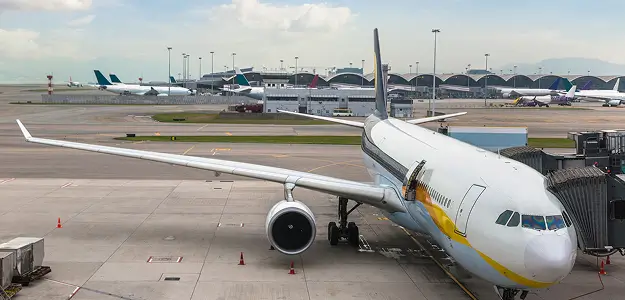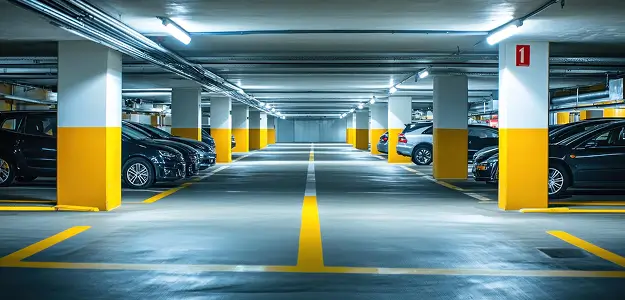Nadia B. Ahmad
Professor of Law, Barry University School of Law
Nadia Ahmad is a Professor of Law at Barry University and has written over 50 scholarly articles and book chapters addressing energy siting, resilience, and international investment law. She serves as co-editor of the Land Use and Environmental Law Review (Thomson Reuters) and co-author of Environmental Justice: Law, Policy & Regulation (Carolina Academic Press). Ahmad is an Affiliated Faculty Member of Harvard Law School's Institute for Global Law and Policy and Fellow at Rutgers Center for Security, Race and Rights. She previously held visiting positions at Yale Law School and Pace Law School. She was appointed to the Smithsonian's American Women's History Museum committee of scholars, co-chairs the American Bar Association's Environmental Justice Committee, and was part of a global coalition awarded the UN Human Rights Prize for championing the right to a healthy environment. She is a PhD candidate at the Yale School of the Environment, focusing on climate and environmental policy.
Cetta Barnhart
Founder and CEO, Seed Time Harvest Farms
Cetta Barnhart is a community-driven farmer and food justice advocate who exemplifies grassroots approaches to building resilient local systems. Originally from Philadelphia, she founded Seed Time Farm Harvest, an online CSA in Monticello, Florida, specifically to address food access inequities in her rural community. Operating a Florida A&M University demonstration site, Cetta employs sustainable practices including no-till methods and vertical growing towers, producing diverse crops from collard greens to exotic fruits. Her work centers on food sovereignty and community self-reliance, principles directly applicable to energy justice. She believes health disparities stem from disconnection from traditional food systems, paralleling how energy injustice disconnects communities from decision-making about their power sources. As part of ATTRAs Farmer Equity Project, Cetta networks extensively with local farmers and advocates for farmer marketing campaigns that strengthen regional food webs.
Carrie Black
Chief Sustainability and Resilience Officer, Orange County
Carrie Black is Orange County's Chief Sustainability and Resilience Officer, where she leads initiatives to strengthen the county's ability to adapt to climate change and promote environmental sustainability. She is responsible for coordinating across departments and stakeholders to implement Orange County's Climate Action Plan and Resilience Strategy. Her work addresses clean energy adoption, greenhouse gas reduction, sustainable land use, and disaster preparedness. With a background in sustainability planning and project management, Black is recognized for advancing policies that reduce environmental risks while enhancing community well-being. She has been instrumental in integrating resilience and sustainability goals into county operations, economic development, and infrastructure planning. Black works closely with regional, state, and federal partners to ensure Orange County is positioned as a leader in climate resilience and environmental stewardship.
Commissioner Lee Constantine
Seminole County Commission, District 3
Lee Constantine serves as the District 3 Commissioner on the Seminole County Commission, bringing decades of public service experience at the local and state levels. A longtime leader on issues of growth management, sustainability, and water conservation, Constantine previously represented Central Florida in the Florida House of Representatives and Florida Senate. During his legislative tenure, he played a pivotal role in passing environmental protections, education reforms, and consumer safeguards. At the county level, he has continued to focus on responsible development, protecting natural resources, and expanding opportunities for residents and businesses. Commissioner Constantine is also active in civic and nonprofit organizations, reflecting his commitment to public service that extends beyond government. His experience as both a lawmaker and county commissioner provides valuable insight into the connections between state policy and local implementation.
Leticia M. Diaz
Dean and Professor of Law, Barry University School of Law
Leticia M. Diaz is the Dean of Barry University School of Law, where she has led with a vision of academic excellence, community service, and global engagement. Appointed in 2007, she became the first Cuban-American woman to serve as dean of an ABA-accredited law school in the United States. Under her leadership, Barry Law has expanded experiential learning opportunities, strengthened its environmental and human rights programs, and deepened its commitment to social justice and service learning. Dean Diaz has worked to increase diversity within the legal profession and to promote access to legal education for underrepresented communities. A chemist and lawyer by training, she brings a multidisciplinary perspective to legal education, emphasizing innovation, ethics, and advocacy. Widely recognized for her contributions to legal education and public service, Dean Diaz embodies Barry Law's mission of educating lawyers who serve the community and advance justice.
State Representative Dr. Anna V. Eskamani
Florida House of Representatives, District 42
Representative Anna V. Eskamani serves Florida House District 42, representing parts of Orange County. A lifelong Orlando resident, she has built a reputation as a bold, unapologetic advocate for working families, reproductive rights, environmental protection, and government accountability. Eskamani earned her Ph.D. in Public Affairs from the University of Central Florida and worked for nearly a decade in the nonprofit sector before entering elected office. First elected in 2018, she made history as the first Iranian-American elected to the Florida Legislature. She has championed legislation on affordable housing, clean energy, and healthcare access while building coalitions across communities. Known for her hands-on approach, she has helped thousands of constituents navigate state systems and access resources.
Clayton Louis Ferrara
Executive Director, IDEAS For Us
Clayton Louis Ferrara is the Executive Director of IDEAS For Us, a United Nations–accredited NGO that develops and funds grassroots environmental solutions worldwide. A classically trained biologist, Ferrara has conducted research on five continents in the fields of evolution, ecology, and conservation. His leadership of IDEAS emphasizes sustainability that balances people, planet, and prosperity, with projects spanning clean energy, water conservation, sustainable agriculture, and waste reduction. Ferrara is the first American to be named a Darwin Scholar by the Field Studies Council in London, a member of the Vatican's SDSN Youth group for Pope Francis, and a founding board member of the Winter Park Land Trust. He also served as chair of Orange County's Development Advisory Board. Born in Santiago, Chile, and based in Central Florida, Ferrara is known for advancing innovative, community-driven initiatives that bridge science, policy, and grassroots action for sustainable development.
Evangeline Fletcher
Just Energy Transitions and Place Research Fellow, Barry University School of Law
Evangeline Fletcher is a graduate of Barry University Dwayne O. Andreas School of Law, where she earned her Juris Doctor as a Merit Scholar. Fletcher has legal experience across multiple practice areas, including intellectual property, tech startups, and insurance defense. She has served as a Research Assistant position at Barry University since September 2023. Her professional experience includes roles as a Legal Extern, Litigation Law Clerk, and Transactional Legal Intern. Prior to law school, Fletcher gained valuable legal industry experience working as a Litigation Paralegal and Summer Law Clerk. She holds a Bachelor's degree in Political Science and Psychology from Florida State University and is a certified Notary Public.
Dr. Zachary Goldberg
Science Fellow, New Jersey Board of Public Utilities
Zachary Goldberg is a Science Fellow at the Rutgers Eagleton Institute of Politics, serving with the New Jersey Board of Public Utilities in the Division of Clean Energy. A geographer by training, he recently earned his Ph.D. from Penn State University, where his research focused on food systems, human-environment interactions, and the politics of energy and sustainability. At Penn State, he taught courses ranging from the Future of Food to Human Use of the Environment and worked across interdisciplinary teams on sustainability projects. Prior to graduate school, Goldberg worked as an environmental educator and agricultural specialist, managing ecological farms and designing experiential education programs. His expertise bridges science and policy, with a particular interest in how governance structures can accelerate equitable clean energy adoption.
Dr. Elise Harrington
Assistant Professor, University of Minnesota Hubert H. Humphrey School of Public Affairs
Elise Harrington is an Assistant Professor at the University of Minnesota's Humphrey School of Public Affairs. Her research explores how regulatory institutions and policy implementation shape transitions in the energy and environmental sectors. She studies the politics of public utilities, the governance of clean energy infrastructure, and the ways local communities navigate uneven impacts of energy change. Harrington has published in leading policy and environmental journals, and her teaching spans energy policy, environmental governance, and methods of policy analysis. She is especially interested in questions of institutional capacity and equity in policy processes, ensuring that energy transitions address not only technological challenges but also social and distributional ones. Harrington's work provides valuable insights into the practical and political dimensions of how energy transitions unfold across states and municipalities.
Michael Hess
Director of Sustainability, Resilience and Future-Ready, City of Orlando
Michael Hess serves as the Sustainability and Resilience Director for the City of Orlando, appointed by Mayor Buddy Dyer in October 2022. A licensed mechanical engineer and graduate of the Milwaukee School of Engineering, Hess brings over two decades of sustainability expertise to his role. Originally from Wisconsin, Hess has called Central Florida home for more than twenty years. He began his career with Orlando in 2019 as Director of the Future-Ready Initiative, where he helped develop the Future-Ready City Master Plan addressing community challenges through technology and data-driven solutions. Recognized as a LEED Fellow—the highest designation for sustainability expertise, Hess has worked on more than 100 LEED Certified projects worldwide. His specializations include sustainability consulting, energy modeling, building commissioning, water reuse, and renewable energy systems. Hess previously served as the first President of the U.S. Green Building Council Florida Chapter in 2016 and held multiple terms on the USGBC National Board of Directors.
Wes Hodge
Chief of Staff to Commissioner Kelly Martinez Semrad, Orange County
Wes Hodge is the Chief of Staff to Orange County Commissioner Kelly Martinez Semrad, supporting policy development, constituent engagement, and legislative strategy. With a background in political organizing and civic leadership, Hodge has been an active figure in Central Florida politics for more than a decade. He previously served as Chair of the Orange County Democratic Party, where he led efforts to expand voter outreach and engagement. In his current role, Hodge works on issues ranging from affordable housing and sustainability to public safety and economic opportunity. Known for his ability to build coalitions and navigate complex policy landscapes, he is dedicated to advancing responsive and inclusive governance. His work reflects a commitment to ensuring that county policies meet the needs of diverse communities while preparing Orange County for future challenges and opportunities.
Samantha Hunt
Researcher, University of Minnesota Hubert H. Humphrey School of Public Affairs
Samantha Hunt is a researcher at the University of Minnesota's Humphrey School of Public Affairs, where her work focuses on energy justice and community engagement in the energy transition. Her research includes collaborations on the localized impacts and governance of green hydrogen/ammonia in the Midwest and procedural injustice in Louisiana's energy transition.
Kathleen John
Legislative Aide to Senator Jason Brodeur, Florida Senate President Pro Tempore
Kathleen John is a Legislative Aide to the President Pro Tempore of the Florida Senate and an economist specializing in environmental policy and cybersecurity strategy. As a first-generation American and daughter of veterans, she brings a unique perspective to bridging conservation and economic development. Kathleen holds a Bachelor of Science in Economics from the University of Central Florida and is pursuing professional education in Cybersecurity Leadership and Strategy at Florida International University. As a National Ambassador and Orlando Chair for the American Conservation Coalition, she has organized clean energy initiatives and coastal restoration projects, advocating for market-based environmental solutions. In 2025, she represented young advocates during the organization's Congressional Fly-In in Washington, D.C. Her work focuses on developing practical, bipartisan approaches to environmental challenges while supporting economic growth.
Samuel Kan
Associate Professor of Law, Barry University School of Law
Samuel Kan is an Associate Professor of Law at Barry University School of Law, where he teaches and writes in the areas of tax law, policy, and social equity. His scholarship explores how tax systems shape economic opportunity, and his teaching emphasizes the importance of fairness, justice, and civic responsibility in legal education. Professor Kan has held multiple leadership roles at Barry Law, contributing to faculty governance and curriculum development. Beyond the classroom, he is committed to mentoring students and ensuring that legal scholarship addresses real-world community challenges. His focus on equity and access provides an important lens for understanding how law interacts with broader social and economic systems. As moderator of this panel, he brings expertise in guiding dialogue that bridges academic analysis with lived community experiences in environmental and energy justice.
J.J. Myers
Senior Director of Development, Barry University
J.J. Myers is a Certified Fund Raising Executive (CFRE) with nearly two decades of experience in strategic resource development across healthcare, human services, and higher education sectors. Currently serving as Senior Director of Development and Foundation Relations at Barry University in Miami, Florida, he secures essential resources supporting the university's environmental sustainability, health, technology, and student success initiatives. His professional expertise spans marketing communications, fundraising, and nonprofit leadership, with a demonstrated commitment to driving organizational success through strategic partnerships. J.J. actively contributes to the professional community as Treasurer for the Public Relations Society of America – Greater Fort Lauderdale Chapter and previously served as co-chair for National Philanthropy Day 2023. Academically accomplished, J.J. holds graduate degrees from the University at Buffalo and Rochester Institute of Technology, with a bachelor's degree from The College at Brockport. He is currently pursuing a Doctor of Education at Baylor University while residing in Miami.
N.Y. Nathiri
Executive Director, Association to Preserve the Eatonville Community, Inc.
N.Y. Nathiri is the Executive Director of the Association to Preserve the Eatonville Community, Inc. (P.E.C.), where she has dedicated more than three decades to cultural preservation, education, and advocacy. A lifelong champion of Eatonville, Florida, the first incorporated all-Black municipality in the United States, she has worked to protect the town's cultural legacy while promoting its future as a global destination for arts and humanities. Nathiri helped establish the ZORA! Festival of the Arts and Humanities in 1990, an internationally acclaimed, interdisciplinary celebration of African American culture inspired by Eatonville native Zora Neale Hurston. Under her leadership, P.E.C. has grown from a grassroots effort into an anchor institution for cultural programming and heritage preservation. Her work connects history with economic development and social empowerment, highlighting how culture and place are essential to equitable community-based transitions.
Ian Njuguna
Graduate College Enrichment Fellow, Arizona State University
Ian Njuguna is a Graduate College Enrichment Fellow at Arizona State University and a researcher with the Arizona Research Center for Housing Equity and Sustainability (ARCHES). His work focuses on urban planning, housing affordability, and the spatial dynamics of energy transitions. Previously, he was a Graduate Research Assistant at the University of Kansas, where he contributed to the Kansas Energy Transition Atlas as part of a Sloan Foundation project on place-based energy transitions. Njuguna also worked on an NSF-funded disaster recovery project, examining infrastructure and hazard response. His professional experience includes serving as a GIS Specialist for Nairobi City County, developing planning tools and 3D urban models, and contributing to Nairobi's public spaces policy. With academic training from Kenyatta University, the University of Kansas, and now Arizona State University, he is dedicated to advancing sustainable, equitable, and resilient urban futures.
Kierra Peoples
Just Energy Transitions and Place Research Fellow, Barry University
Kierra Peoples is a graduate of Barry University School of Law with a distinguished academic record and commitment to environmental and social justice. During her legal education, she served as a research assistant to Professor Ahmad for two and a half years, specializing in Just Energy and Place initiatives. Her scholarly work culminated in presenting research on environmental and energy justice at the University of Richmond School of Law. As a third-year law student, Peoples published a legal comment with the SRBLSA Southern Policy and Justice Journal, focusing on racial bias of AI in social media platforms. Her academic excellence earned recognition through awards, including the Gwen S. Cherry Black Women Bar Association's Book Award and SRBLA's Servant's Heart Award in 2024. Beyond academics, Peoples demonstrates community commitment through volunteer work at the Parramore Community Garden.
Brianna Pruitt
Just Energy Transitions and Place Research Fellow, Barry University
Brianna Pruitt is a law student at Barry University School of Law and research assistant to Professor Nadia Ahmad. Since May 2024, she has contributed to the Alfred P. Sloan Foundation project on place-based energy transitions, conducting interviews and focus groups with energy sector professionals and community members to advance understanding of sustainable energy development. Pruitt brings diverse legal experience through internships and fellowships spanning consumer advocacy, intellectual property, guardian ad litem work, and landlord-tenant disputes. This broad exposure has shaped her perspective on how legal frameworks impact different communities and sectors. Since beginning law school, Pruitt has developed a particular focus on environmental sustainability, especially examining how the intersection of law and social disparities affects communities' access to sustainable resources and opportunities. Her academic and professional interests align with her post-graduation goals.
Commissioner Shan Rose
Orlando City Commission, District 5
Shan Rose serves as Commissioner for Orlando's District 5, which encompasses some of the city's most historic and culturally vibrant neighborhoods. Rose brings a deep commitment to community development, housing, and equitable growth. With experience in both public service and community advocacy, she has been a strong voice for expanding opportunities in education, workforce development, and affordable housing. Commissioner Rose has worked to advance policies that address long-standing disparities while fostering inclusive economic growth. Her approach emphasizes collaboration with residents, nonprofits, and businesses to ensure that development benefits all members of the community. She is committed to protecting the character of Orlando's historic neighborhoods while preparing them for future opportunities, particularly around energy, sustainability, and resilience.
Dr. Ernesto Ruiz
Research Coordinator, The Farmworker Association of Florida
Dr. Ernesto Ruiz is an applied anthropologist and public health researcher who serves as Research Coordinator with the Farmworker Association of Florida. His work employs mixed-methods approaches to examine how social structures and cultural factors shape human experiences, particularly in immigrant and agricultural worker communities. With extensive research and teaching experience in Costa Rica, Puerto Rico, and the continental United States, Dr. Ruiz specializes in community-based outreach and participatory research. At FWAF, he investigates pressing issues such as pesticide exposure, extreme heat, and occupational health risks, while amplifying the voices of farmworkers in policy discussions. He previously held research positions with Meharry Medical College, the Florida Department of Health, and in the private sector, applying his expertise across academic, public, and industry settings. His scholarship and advocacy reflect a deep commitment to advancing health equity, environmental justice, and sustainable futures.
Margaret Stewart
Assistant Professor of Law, Barry University School of Law
Margaret Stewart is an Assistant Professor of Law at Barry University School of Law, specializing in environmental and administrative law. Her teaching and research explore the intersections of law, science, and governance, with particular attention to water resources, coastal management, and climate adaptation. Professor Stewart's scholarship highlights how legal frameworks shape resilience and equity in the face of environmental challenges, and she engages students in applying classroom learning to pressing sustainability issues. Prior to joining Barry, she worked extensively on regulatory and environmental compliance matters, giving her a practical perspective on how policy impacts communities. She is deeply committed to integrating legal education with community engagement, ensuring that students not only understand doctrine but also its application in real-world contexts. Stewart's work underscores the need for legal systems that foster inclusive, sustainable responses to climate change and energy transitions.
Danielle Stokes
Associate Professor of Law, University of Richmond School of Law
Danielle Stokes is an Associate Professor of Law at the University of Richmond School of Law. Her teaching and scholarship focus on environmental justice, energy law, and property. She examines how land use, infrastructure, and regulatory design affect vulnerable communities during energy transitions. Prior to joining Richmond, Stokes practiced environmental and real estate law, bringing practical legal expertise to her research and teaching. Her recent work addresses how renewable energy development intersects with housing, health, and equity concerns, highlighting the need for policies that prevent marginalized communities from bearing disproportionate burdens. Stokes is committed to preparing students to approach legal challenges with an equity lens and to ensuring that the energy transition creates opportunities rather than harms for historically excluded groups.
Commissioner Nicole Wilson
Orange County Commission, District 1
Commissioner Nicole Wilson is a licensed attorney specializing in public interest law with extensive experience helping individuals and non-profit environmental organizations navigate legal frameworks at local, state, and federal levels. Committed to ensuring equal rights under the law, Commissioner Wilson advocates tirelessly for underserved community members. A Central Florida resident for over 20 years, Nicole holds a bachelor's degree in psychology and human services from Mercer University and a law degree from Barry University School of Law, where she concentrated in environmental and earth law. She gained practical experience through Barry Law's Environmental and Earth Law Clinic, serving as Associate Editor of the Environmental and Earth Law Journal and earning an Honors Certificate in Environmental and Earth Law. Nicole is an active member of the Florida Bar Environmental and Land Use Section, American Bar Association State and Local Government Law Group, and Orange County Bar Association. Additionally, she has served Orange County Public Schools communities for over 12 years, receiving the Dolphin Living Legacy Award.










